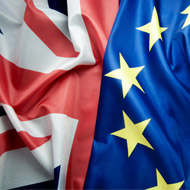
Applications will be rejected if they significantly differ to UK qualifications
Changes to how veterinary nurses from the European Union join the register after Brexit have been agreed by the RCVS VN Council.
In a meeting of VN Council on Wednesday (6 February), members were invited to consider the closer alignment of the processes for EEA and non-EEA applicants.
Members agreed that in the event of a no-deal Brexit, anyone whose VN qualification is considered similar in content and scope to UK-accredited qualifications would be required to pass the RCVS pre-registration examination.
These applications will continue to be able to apply for permission to work in a veterinary practice while preparing for the examination.
Members also agreed that applications will be rejected if they are significantly different in content and scope to UK-accredited qualifications. The option to make up any deficient areas while working in practice will no longer be available.
The RCVS states that holders of qualifications accredited by the Accreditation Committee for Veterinary Nurse Education (or ACOVENE) will continue to have direct access to the Register as its accreditation criteria are based on UK standards.
Currently all UK veterinary nurse course providers in further and higher education are ACOVENE accredited as well as five educational establishments in the Republic of Ireland and one each in Belgium, Italy, the Netherlands, Norway and Portugal.
RCVS director of veterinary nursing said: “It is important to remember that the numbers of non-UK EEA veterinary nurses who join the Register each year is much lower than for veterinary surgeons – normally being somewhere between 40 to 60 individuals each year, the majority of whom have qualified on an ACOVENE accredited veterinary nursing course.
“We will continue to welcome applications from those holding other EEA and non-EEA qualifications. If we depart the EU without a deal will be able to introduce more flexibility when deciding whether applicants should be accepted, rejected or accepted on condition of passing the pre-registration examination.
"This will be based on how well aligned their education and clinical experience is with our registration criteria.”



 The RCVS has announced a new version of its 1CPD mobile app, with enhanced features for veterinary surgeons and veterinary nurses to record their continuing professional development.
The RCVS has announced a new version of its 1CPD mobile app, with enhanced features for veterinary surgeons and veterinary nurses to record their continuing professional development.